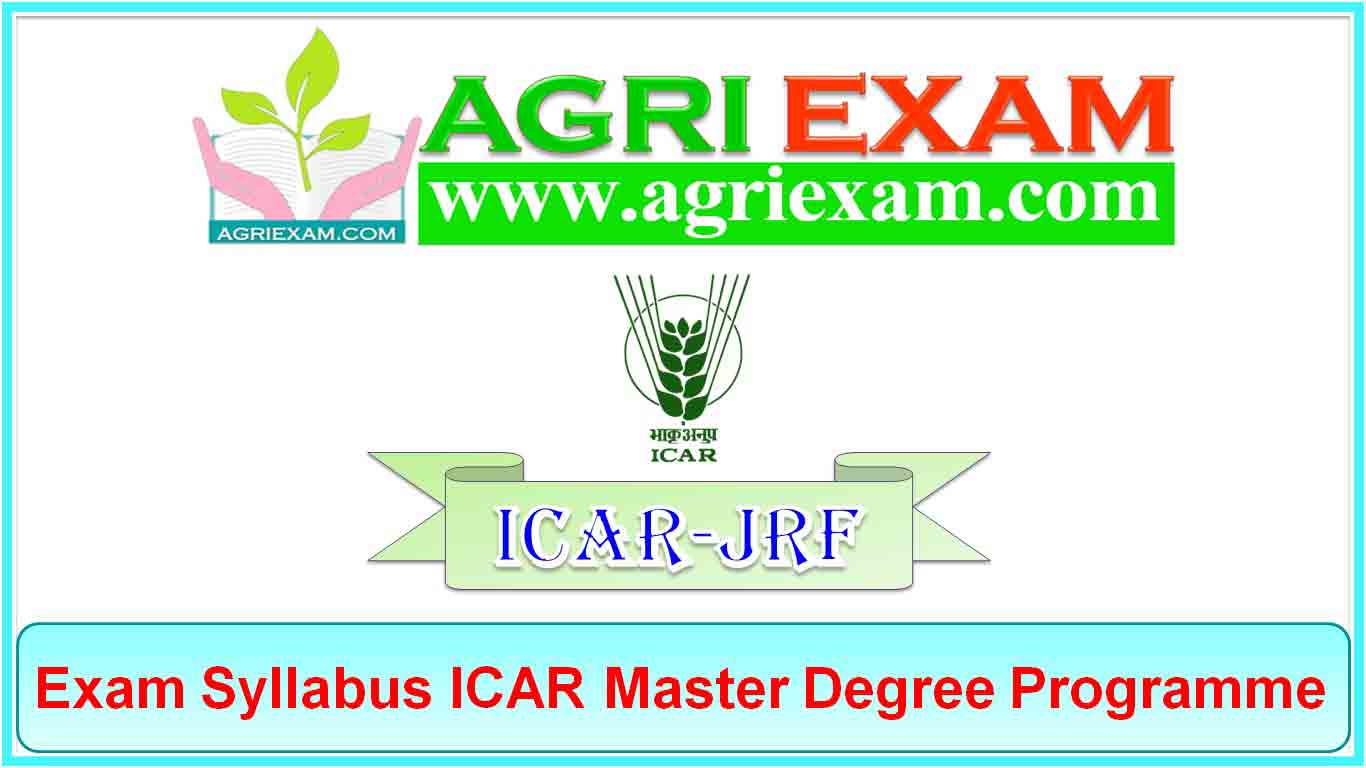
Sub-Subjects:
1.1: Plant Biochemistry/ Bio. Chem.
1.2: Plant Biotechnology & Molecular Biology/Biotechnology,
1.3: Plant /Crop Physiology
UNIT-I: Importance of Agriculture in National Economy; basic principles of crop production; cultivation of rice, wheat, chickpea, pigeon-pea, sugarcane, groundnut, tomato, and mango.
Major soils of India; role of NPK and their deficiency symptoms. General structure and function of cell organelles; mitosis and meiosis; Mendelian genetics.
Elementary knowledge of growth, development, photosynthesis, respiration and transpiration; Elements of economic botany.
General structure and function of carbohydrates, proteins, nucleic acids, enzymes and vitamins. Major pests and diseases of rice, wheat, cotton, chickpea, sugarcane and their management.
Organic farming; bio-fertilizers; bio-pesticides. Recombinant DNA technology; transgenic crops.
Important rural development programmes in India; organizational set up of agricultural research, education and extension in India. Elements of statistics.
UNIT-II: Importance of Biochemistry in agriculture. Acid-base concept and buffers; pH. Classification, structure and metabolic functions of carbohydrates, lipids and proteins.
Structure and function of nucleic acids. Enzymes: structure, nomenclature, mechanism of action; vitamins and minerals as coenzymes and cofactors.
Metabolic pathways: glycolysis, TCA cycle, fatty acid oxidation, triglyceride biosynthesis. Electron transport chain; ATP formation.
Photosynthesis: C-3, C-4 and CAM pathways. Nitrate assimilation; biologicalnitrogen fixation. Colorimetric and chromatographic techniques
UNIT-III: Characteristics of prokaryotic and eukaryotic organisms; differences between fungi, bacteria, mycoplasms and viruses. Physical and chemical basis of heredity; chromosome structure.
DNA replication, transcription and translation; genetic code; operon concept. Genetic engineering; restriction enzymes; vectors; gene cloning; gene transfer.
Plant cell and tissue culture; micro-propagation; somaclonal variation. Transformation; recombination; Heterosis. General application of biotechnology.
Molecular and immunological techniques. Concept of bioinformatics, genomics and proteomics.
UNIT-IV: Plant Physiology/ Crop Physiology: Plant physiology– importance in agriculture. Seed germination, viability and vigour. Photosynthesis- significance of C-3, C-4 and CAM pathway; photo-respiration and its implications. Translocation of assimilates; dry matter partitioning; Harvest index of crops.
Growth and development; growth analysis; crop-water relationship. Plant nutrients and their functions. Phytohormones and their physiological role.
Photo-periodism, vernalisation; pollination/ fertilization in flowering plants. Post-harvest physiology and its significance.
ICAR JRF Syllabus Plant Biotechnology
sir, may i know about the referenc ebooks to be used for the preparation of ICAR JRF plant biotechnology 2019? I have heard that there are some changes in the syllabus. If so, please guide on the topic.
plz send me the pdf study material for plant biotechnology icar jrf
Where can I get the old year question papers for Plant Biotechnology?